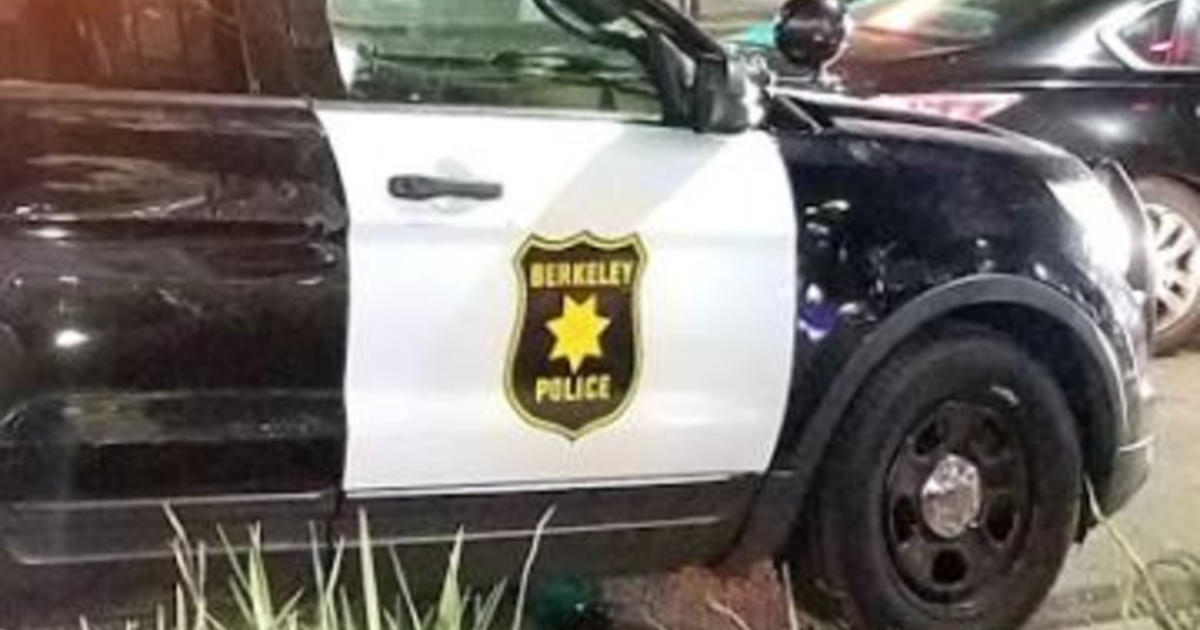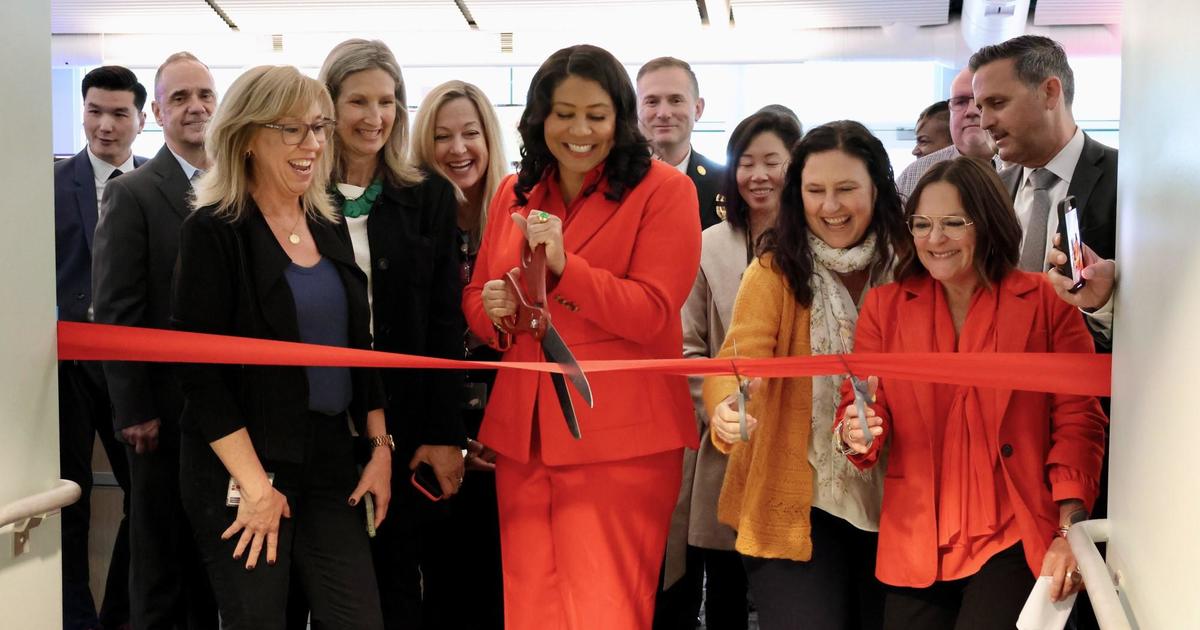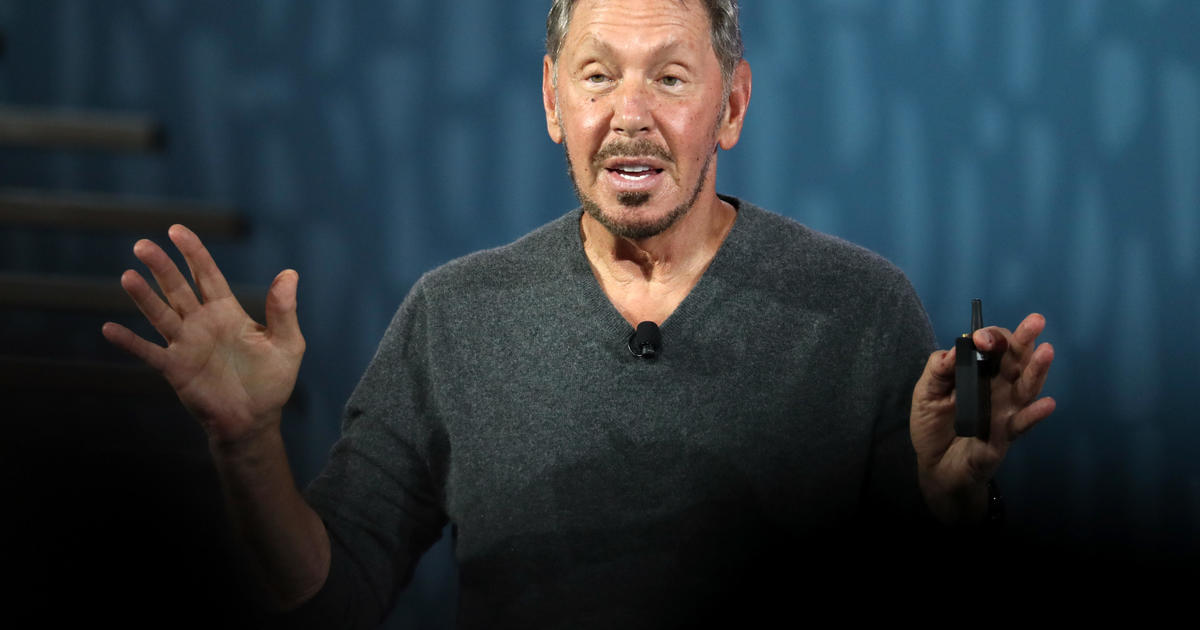Vote Allows Berkeley Police To Use Pepper Spray At Violent Protests
BERKELEY (CBS SF/AP) — Police in Berkeley got permission from the city council Tuesday to add pepper spray to the force's arsenal to disburse violent demonstrations that have repeatedly hit the city this year during political protests, a move that comes ahead of another planned controversial speech at the University of California, Berkeley.
The city banned pepper spray in 1997 as a crowd-control weapon, though most law enforcement agencies permit officers to use it to disburse violent crowds, Police Chief Andrew Greenwood said. That's what Greenwood sought at an emergency council meeting, saying it is preferable to batons and tear gas, which the city is allowed to use but disburses far wider than pepper spray.
The Berkeley City Council voted 6-3 in favor of approving the police department request to allow the use of pepper spray.
ALSO READ:
- Alt-Right Militant 'Based Stickman' Pleads Not Guilty In Berkeley Violence
- Berkeley Mayor: We Should Classify Antifa 'As A Gang'
- Coulter, Yiannopoulos, Bannon May Speak At UC Berkeley In September
According to an exclusive KPIX 5/Survey USA Poll, 77 percent responded that yes, use of pepper spray should be allowed if peaceful demonstrations turn violent.
Additionally, four out of ten respondents think Berkeley police haven't been forceful enough in responding to recent protests.
Officers were preparing for violence as soon as Thursday when conservative political commentator and former Breitbart editor Ben Shapiro appears on campus and again later this month when conservative figures have been invited to speak.
"It is a request made of urgency," Greenwood said.
Dozens of people lined up at city hall to oppose arming Berkeley police with pepper spray, saying it is too easy for officers to use and has the potential to be used on peaceful protesters.
The police chief argued pepper spray protects peaceful demonstrators. He said tear gas -- for example -- hurts everyone in the crowd, but officers can use pepper spray to target individuals.
Berkeley Mayor Jesse Arreguin said he supports the police department's request to use pepper spray as a tool to deter violence against police and other individuals, but was opposed to using it as a form of crowd control.
"Pepper spray shall not be used as a crowd control technique to disperse a crowd or move a crowd," said Arreguin. "Pepper spray shall not be used on persons engaged in legal speech or other expression that is protected by the First Amendment."
Some cities nationwide banned pepper spray after several high-profile incidents of police using it on peaceful protesters. An incident in which students at the University of California, Davis, were pepper-sprayed during a peaceful demonstration in 2014 led to a $1 million legal settlement for the protesters.
Ishmael Tarikh, a civil rights lawyer with the National Lawyers Guild, said police must issue a dispersal order before firing tear gas canisters. Tarikh said police don't have to issue a warning when using pepper spray.
"It's a blunt instrument used for a very precise problem," he said.
Four political demonstrations have turned violent in Berkeley since February, prompting officers to come up with new strategies to control rowdy and sometimes dangerous crowds. Berkeley police said they have not deployed tear gas at the other protests this year.
Police say they are struggling to balance free speech rights with preventing violence. Berkeley is facing a "large, armed coordinated group" at political events, Greenwood said.
"Our officers do not have the tools to address this threat," he said.
Joseph Giacalone, a professor at John Jay College of Criminal Justice and a former New York City police sergeant, said it would be advantageous for police to be able to use pepper spray during protests but tactical decisions should be made based on the conditions.
He said although tear gas and pepper spray often cause the same effects, shooting tear gas at a group of protesters often means spraying innocent bystanders and people frequently throw the cans back at officers.
"There are going to be bystanders in that crowd, and let's face it, the people you're trying to control come prepared for it. They have gas masks on," Giacalone said.
Later this month, a conservative group says it plans to bring former White House adviser Steve Bannon to speak on campus along with former Breitbart editor Milo Yiannopoulos and politically conservative commentator Ann Coulter.
A Yiannopoulos appearance on campus in February was canceled for safety reasons when protests turned violent and spilled into downtown Berkeley. Protesters smashed windows of businesses and marred walls with graffiti.
TM and © Copyright 2017 CBS Radio Inc. and its relevant subsidiaries. CBS RADIO and EYE Logo TM and Copyright 2017 CBS Broadcasting Inc. Used under license. All Rights Reserved. This material may not be published, broadcast, rewritten, or redistributed. The Associated Press contributed to this report.



